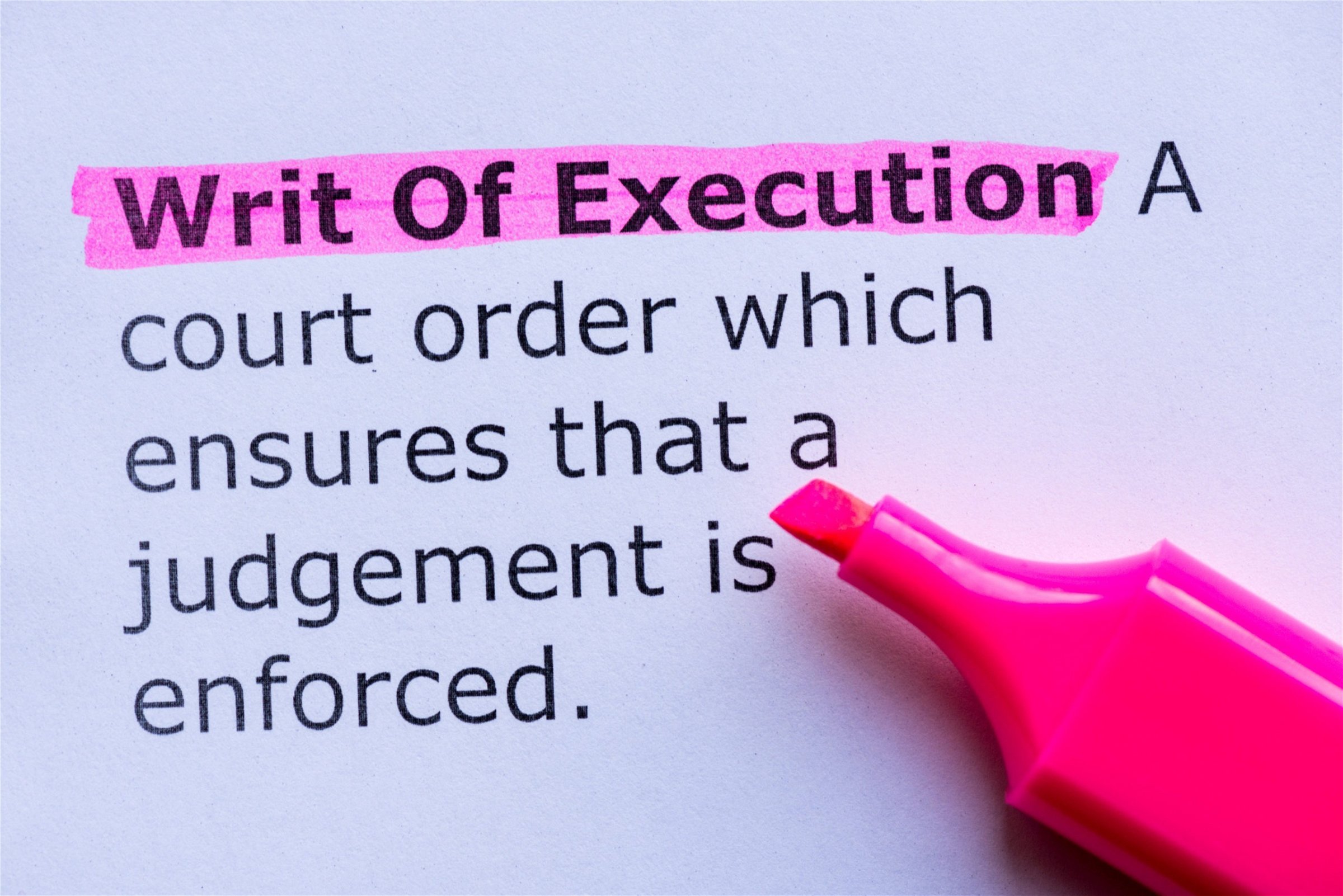Once a creditor receives a judgment, the next step is to serve the debtor with a writ of execution. A writ of execution is a procedure that provides authority to seize property or assets that are used to fulfill a debt. In some cases, a writ of execution is a necessary step toward obtaining payment for debts owed to a creditor. An experienced attorney will help guide you through the collection process and assist you in getting payment for debts that are owed to you.
Understanding a Writ of Execution
When a creditor is owed money, they may take legal steps to seek repayment. Once a creditor obtains a court order, the next step to obtain payment due is a writ of execution. A writ of execution follows the rule of civil procedure in satisfying the judgment. The writ of execution is a procedure to procure payment following a judgment when the creditor fails to comply. A writ of execution in New Jersey and elsewhere must comply with the law. When the court issues a writ, it allows law enforcement to seize personal property as allowed by law.
Compliance With a Judgment
When a creditor receives a court judgment, it is a legal order that requires the judgment debtor to comply. The debtor may satisfy the judgment by paying the creditor as per the court order. Unfortunately, the debtor likely does not have the liquid assets necessary to comply, which could be why the matter proceeded as it did. If a debtor fails to comply with a court judgment order, the creditor may seek a writ of execution to obtain the money they are owed.
What Property is Included in a Writ of Execution?
In general, a writ of execution allows the sheriff or constable to seize property and assets in satisfying the judgment. Many types of property, money, and assets are included and can be seized as a result of a writ of execution. For instance, property, including a primary or vacation home, vehicles, and other assets, can be seized. The property that is to be seized is in accordance with the court’s judgment. A writ of execution may also be used in bankruptcy cases.
Is Any Property Exempt From a Writ of Execution?
Exempt property is a property that is not allowed to be seized with a writ of execution. The exact exemptions vary by state. Generally, several types of property are typically exempt from seizure. These include such things as social security payments, authorized retirement account assets, and unemployment insurance. Property that is co-owned may typically be exempt. Other examples of property that may be exempt include clothing, furniture, and pets. Farm equipment may also be exempt. It is important to discuss the matter with a knowledgeable collections attorney to understand the property that can and cannot be seized with a writ of execution.
What Happens After the Writ is Served?
A writ of execution is one of the final steps in procuring compensation for debts owed. The sheriff or marshall will seek to seize property to fulfill the order. The property may then be sold in order to pay the debt specified. The seizure may also include money from a specific bank account that belongs to the debtor.
The writ of execution begins the property ownership transfer. When money is seized, the judgment debtor’s bank accounts can be frozen, or the funds may be transferred to a holding account. When an actual property is seized, the sheriff will sell the property and provide the funds, which will satisfy the judgment. Once the sheriff seizes the property, the judgment will be satisfied and complete.
How Long is a Writ of Execution Good?
There are instances when a writ of execution is served, but there is insufficient property to satisfy the judgment. A writ of execution expires after a period of time. The time is set by state laws but maybe five years or longer. During this time, the judgment creditor may take steps to execute the writ. For example, the debtor may not currently have assets but may have some in the future. The writ allows the creditor to seek the money owed for a period of time until the writ expires.
If you are a party to a writ of execution, it is helpful to get legal guidance. Contact our attorneys at Snellings Law, LLC, to discuss the details of your case today.
